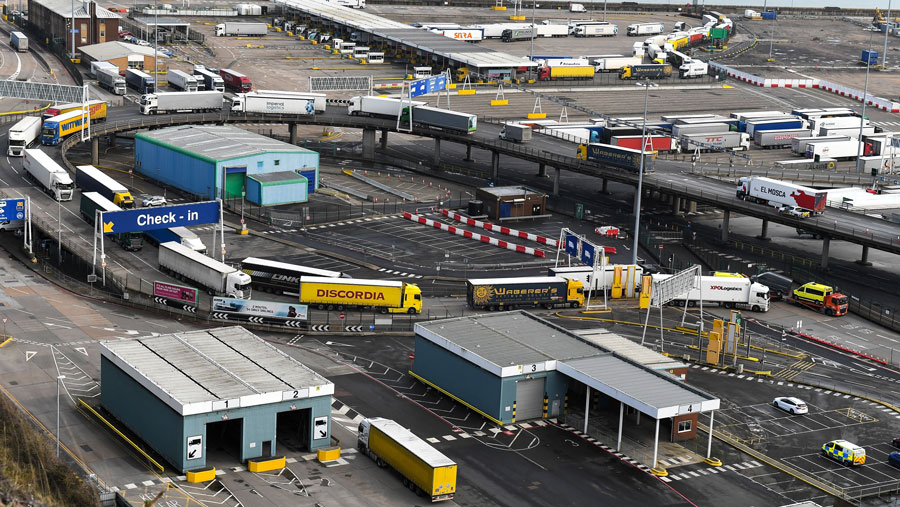Disappointment as food import border check deadline reviewed
 © Anthony Harvey/Shutterstock
© Anthony Harvey/Shutterstock Deadlines for border inspections to begin on EU food imports may be postponed as checkpoint construction has fallen way behind schedule.
Thirty border control points (BCP) were due to be in place by 1 July, but a review of the construction timetable has now been ordered by Lord Frost, who was appointed as Cabinet member in charge of EU relations last week.
A spokesman for the former Brexit negotiator told Farmers Weekly: “When he took up his new role, Lord Frost requested a review of the timetable for import controls and its impact on businesses, but no decisions have been made.”
Farm leaders had hoped increased checks would level up trade flows between the UK and EU.
Unlike the EU, which imposed stringent checks on British exports from 1 January, the UK government has taken a soft approach after Brexit.
The government waived customs restrictions and fast-tracked food imports because it feared empty supermarket shelves would mar the start of the post-Brexit era.
Instead, the plan was to introduce documentary checks on animal products for human consumption from 1 April.
From 1 July, third-country status would be imposed on EU goods once BCPs were operational, albeit six months after Brussels put those same controls on British exports.
See also: Hopes tougher import checks will level up EU-UK trade
While the Cabinet Office rebuffed claims that the review was due to further fears about possible food shortages, the plan to have checkpoints operational has clearly fallen behind schedule.
With 16 weeks to go before the original deadline, some of the checkpoint sites remain bare, waterlogged fields, devoid even of groundworks.
Richard Ballantyne, chief executive of the trade body British Ports Association (BPA), told the Guardian newspaper: “It’s obvious not all of the facilities are going to be ready. How much of it will be is still up for debate.”
News of the failure has come as a blow to the pig sector – one of the hardest-hit by the open-door policy. Prices have plummeted in line with a far cheaper EU imported product.
National Pig Association chief executive Zoe Davies expressed huge disappointment at a lost opportunity to level up trade.
“We had hoped that by July, Britain would be in a stronger position and able to control imports better,” Dr Davies said.
As it is, the UK would continue to be exposed to cheap food imports for far longer and until a firmer approach was implemented, she said.
Dr Davies also expressed concern about the animal health threat posed by imported pigmeat.
She pointed out that the fast-tracking of food was taking place while Germany, a major pigmeat producer, was struggling to contain African swine fever in its wild boar population.

